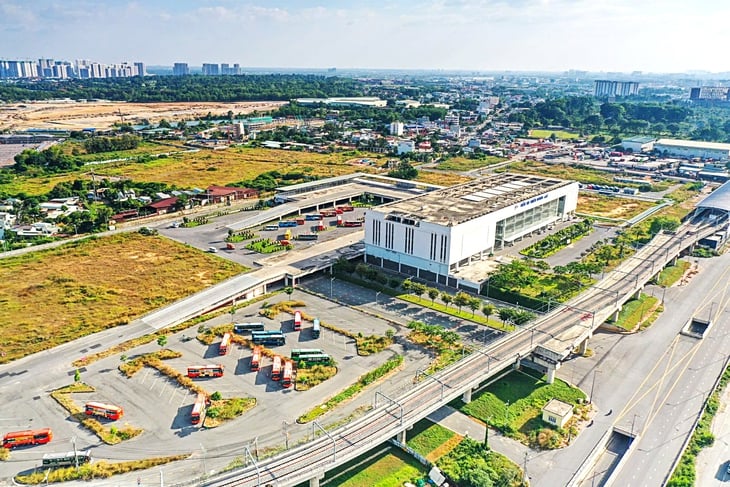
State-owned enterprises need to be given good mechanisms to effectively implement important projects - Photo: QUANG DINH
Many leaders of state-owned enterprises (SOEs) lamented this at the scientific seminar "Mobilizing SOE resources for the development of Ho Chi Minh City in the spirit of Resolution No. 68 of the Politburo on private economic development", organized by the Ho Chi Minh City Institute for Development Studies on June 3.
According to businesses, in the marketplace, partners will not sympathize with the situation of being entangled in administrative procedures and unclear information, leading to lost business opportunities, just because of the name of a state-owned enterprise.
Inflexible mechanism, state-owned enterprises lose business opportunities
At the discussion, Mr. Nguyen Hoang Huy, Director of the Eastern Bus Station Company Limited (under Saigon Transport Mechanical Corporation - SAMCO), said that SAMCO had brought its documents to Hanoi , "went back and forth 4 times" but only received 4 words about the subject "not allowed to increase capital", while this enterprise was assigned to a key transport project. If it used all the borrowed capital, the enterprise would be under "terrible pressure".
According to Mr. Huy, there are projects that require investment capital of up to hundreds of billions of VND, even thousands of billions of VND. If businesses want to participate, they need to clearly understand the land lease period of 20 or 30 years before they dare to invest. The paradox is that even though businesses have gone to "knock on the doors" of many departments and agencies, they still do not know the exact land lease period!
Meanwhile, Mr. Vo Anh Tai, Deputy General Director of Saigon Tourist Corporation, said that although the number of equitized SOEs is not large, the value of shares is very large. After the equitization period, a number of problems have arisen that make it difficult for businesses, not only in terms of capital mobilization but also related to many administrative procedures.
"When entering the business "arena", state-owned enterprises and other sectors compete fairly, but state-owned enterprises are "tied up" by the management mechanism and cannot compete," said Mr. Tai.
Accompanying many SOEs, Mr. Nguyen Quang Thanh, Deputy General Director of Ho Chi Minh City State Financial Investment Company (HFIC), said that in many cases, SOEs do not need incentives, they just hope that they will not be mistreated. For example, there are businesses that are doing well and need to increase capital, but are stuck in all kinds of procedures. On the contrary, there are inefficient businesses, but it is not possible to cut capital immediately if you want to.
"State-owned enterprises need to have a governance system similar to private enterprises, which greatly determines their success. If the time for procedures is too long, opportunities will be lost. Not to mention, with the current mechanism, business secrets will also be lost," Mr. Thanh said, adding that there needs to be a way to divide profits appropriately for state-owned enterprises, and consider how much contribution to the budget is appropriate.
Because businesses need money in advance to have resources to invest in technology, purchase equipment, develop business...
Boldly divest capital to the private sector, keeping only key state-owned enterprises
Mr. Tran Anh Tuan, Chairman of the Board of Directors of Tan Thuan Industrial Development Company Limited, said that SOEs are not simply business entities, but also shoulder many political and social tasks. This is a difficult problem for the leadership team as they must ensure financial efficiency while fulfilling the requirements of serving the community.
While the private economic sector mainly operates under the Enterprise Law, SOEs are regulated by many laws at the same time such as: Law on Management and Use of Public Assets; Law on Public Investment; Law on Bidding; Law on Prices and other specialized regulations. "SOEs manage assets while ensuring efficiency, preserving and developing capital, but are bound by many legal regulations," said Mr. Tuan.
For example, unused land cannot be leased if it does not match the registered business line. Project investment must follow the procedures of the Law on Public Investment, while procurement and investment activities must follow the Law on Bidding and the Law on Management and Use of Public Assets. These constraints make it difficult for SOEs to be flexible and slow to adapt to the market.
From international experience, Dr. Tran Ngoc Anh, Indiana University (USA), observed that SOEs in the world and in Vietnam often face core challenges such as doing business while taking on political roles, being afraid of high growth for fear of being imposed with higher standards next year, and having their vision limited by term...
Therefore, businesses that are monopolizing their industries need to be carefully considered, because there are two sides. "Without competition, there is certainly no dynamism, it is difficult to attract customers, creating a bottleneck for the economy," Mr. Anh said, adding that in business, there needs to be competition both domestically and with international businesses.
Prof. Dr. Nguyen Trong Hoai, Ho Chi Minh City University of Economics, believes that in areas where the private sector can undertake, the State should boldly divest or fully equitize. On the contrary, in areas where the private sector cannot participate or is ineffective, the State should retain it to play a leading role.
Citing experience from some countries such as the Philippines, Malaysia, etc., Mr. Hoai said that many SOEs still exist and develop thanks to hiring professional private management teams, operating according to international practices and market mechanisms. "Regardless of the model, there still needs to be a number of SOEs that are strong enough and have real capacity to orient and lead development in key areas," Mr. Hoai said.
If done the old way, it is difficult to effectively implement equitization.
According to the plan, Ho Chi Minh City must announce the enterprise value of 10 units on the equitization list from now until the end of 2025. However, determining enterprise value according to market mechanisms and transparency of assets and debts is still very slow.
Mr. Tran Anh Tuan believes that the 51% state capital ratio should not be rigidly maintained in all cases. If the enterprise is not in the field of security - defense or long-term strategic investment. The state can reduce the ownership ratio, or even transfer it entirely to the private sector if the market has sufficient capacity.
This will both create new development resources and free up state capital to invest in areas that are truly needed. "To do this, there needs to be a breakthrough mechanism and a strong innovation perspective from the central to local levels. If we continue to apply the old way of doing things, it will be very difficult to effectively implement equitization," Mr. Tuan emphasized.
Meanwhile, Dr. Tran Du Lich suggested that Ho Chi Minh City consider the proposal to reorganize SOEs into five functional groups: financial investment, urban infrastructure development, high-tech infrastructure development, digital infrastructure and innovation. Particularly, areas such as urban railway development, public utility companies... can gradually shift towards socialization.
Source: https://tuoitre.vn/doanh-nghiep-nha-nuoc-keu-bi-troi-tay-20250604075114427.htm



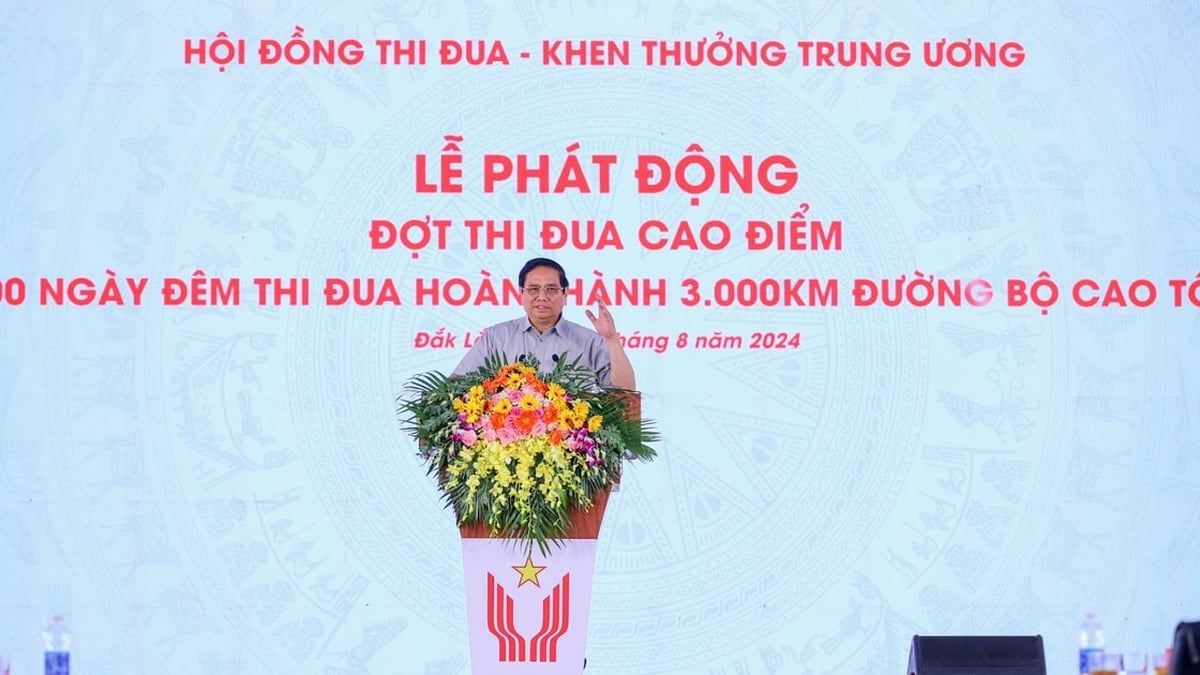
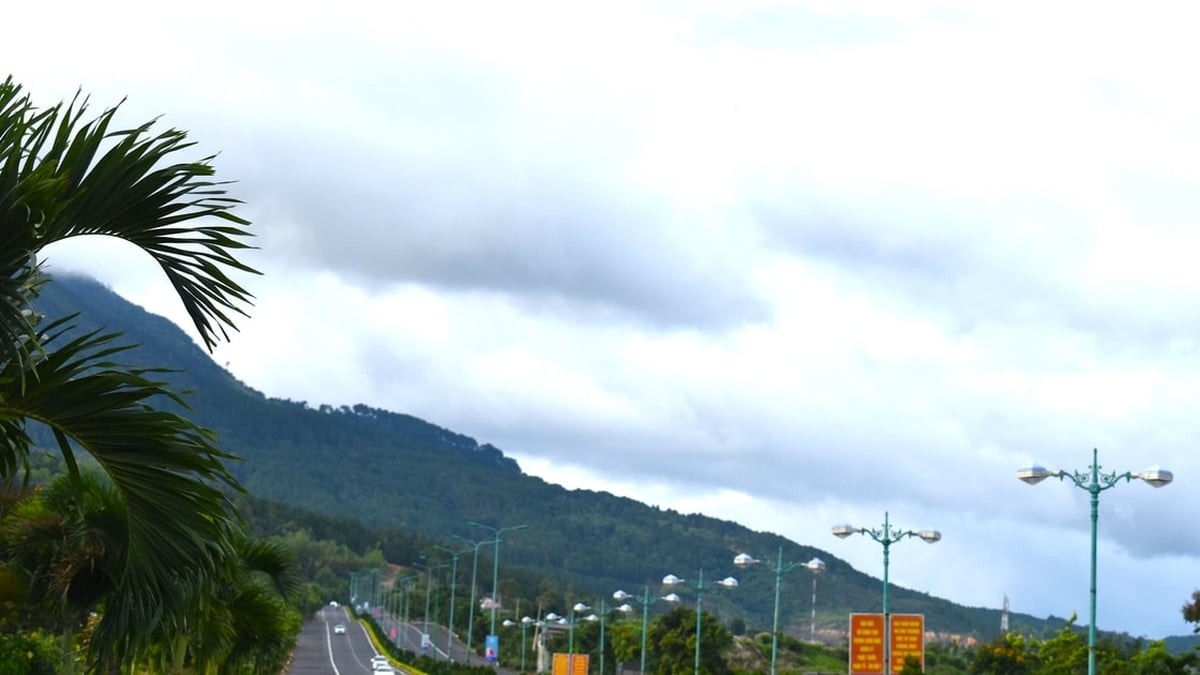

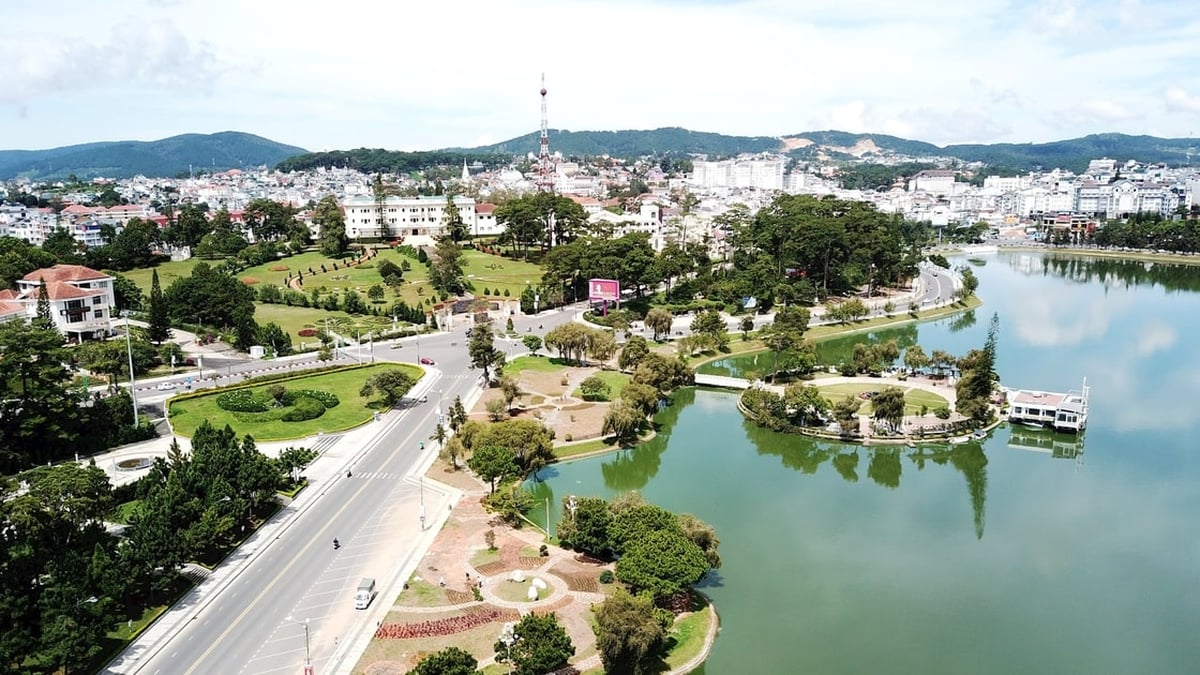

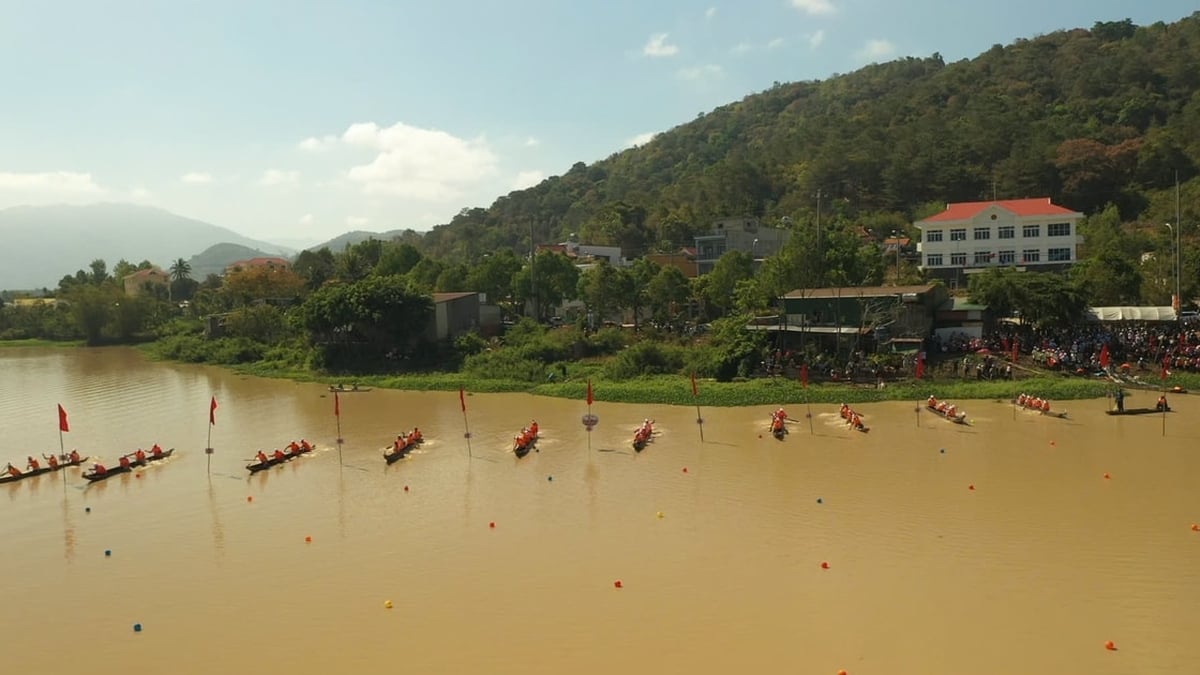


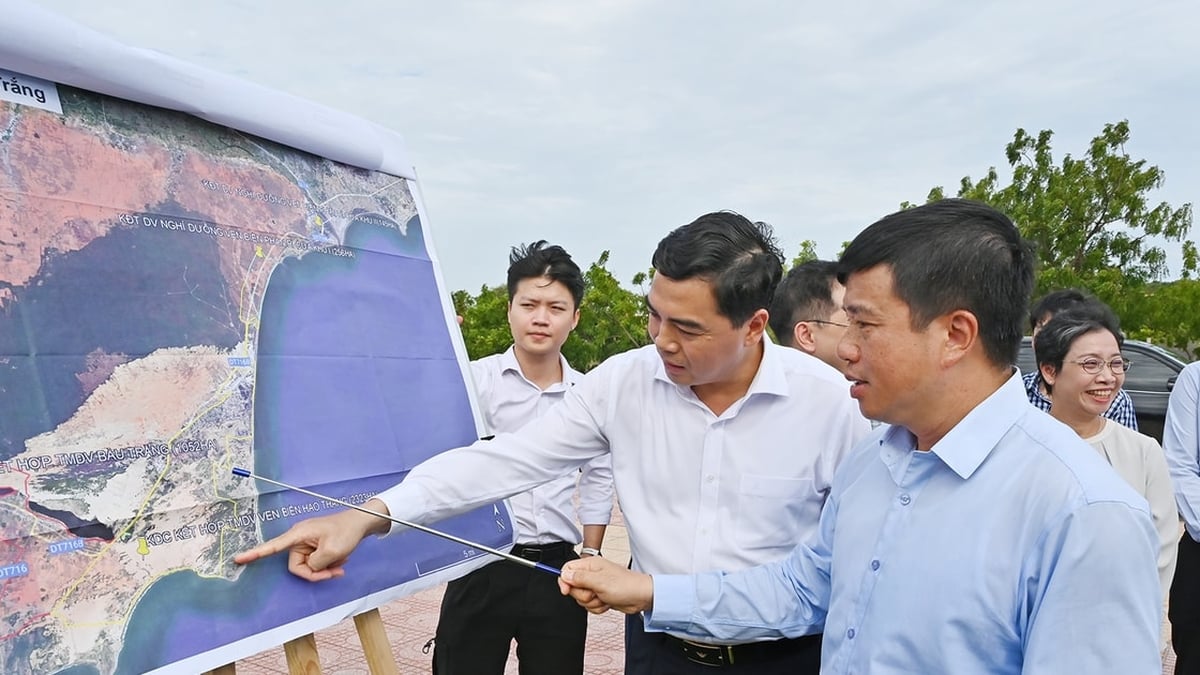






















































































Comment (0)